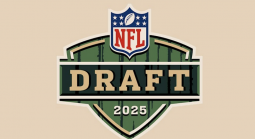How to Run an In-Play Sportsbook the Right Way
In their "must read" book "The Logic of Sports Betting", Ed Miller and Matthew Davidow discuss the pitfalls of offering live in-play wagering, which now accounts for more than half of the betting activity at some offshore sportsbooks.
|
*Free trial test drive for up to 4 weeks |
The in-play wagering feature has forced most independent bookmakers to use a Pay Per Head service. Needless-to-say, it's a "must have" for today's demanding sports bettor who desires a more interactive experience.
Not offering in-play betting these days is akin to not taking bets on the NFL.
Typically these odds originate as a data feed from a third-party vendor. Some sportsbooks utilize multiple vendors and even incorporate their own proprietary platform.
The prices are often developed through automation, the use of database queries or by precomputing the answers, since no human being is going to be able do these computations in-play.
From "The Logic of Sports Betting":
You take information about the strength of the teams (pregame closing lines), information about the game state (the score, the inning and/or how much time is remaining, and any other relevant information like who has the ball, position on the field, and so on), and combine them intelligently to come up with a line.
The first problem is that there is an enormous amount of information available once the game starts that wasn’t reflected in the pregame lines.
Maybe a player or two got injured during the game.
Maybe the teams are playing different strategies than the market expected before the game started.
Maybe the teams are playing faster or slower.
Maybe they’re fouling more or less.
Maybe the weather took an unexpected turn.
Maybe one key player is playing at a much higher (or lower) level than their usual standard.
Much of this is information that is readily available to anyone with a web browser and a TV.
It’s also information that is — as you might imagine once I described how the lines get made — extremely difficult (in some cases) or nearly impossible (in others) to account for correctly, in real time, second-by-second, in an in-play line feed.
And sportsbooks aren’t content these days with offering just a spread and total in-play. They want to offer dozens of markets. All updated by the second. All priced in an instant.
I call this wide range of betting options that sportsbooks offer without fully understanding them “attack surface,” a concept I’m borrowing from computer security that I think also describes sports betting well. I’ll explain the analogy a little later in the book.
The second major problem from the sportsbook’s perspective with offering in-play is that they rely on correct, up-to-the-second game state information. Since the game state is a key part of the equation to price the markets, if the game state data is either slow or error-prone, the lines priced using it will also be slow or error-prone.
The book goes on to describe how European bookmakers are all too familiar with "countersiders", those sports bettors who are constantly looking to take advantage of slow feeds by attending games and getting key information several seconds faster than the sports books are receiving it.
The seconds count.
Caanberry.com provides an example of how courtsiding works:
If Federer is playing Murray, and Murray wins a point, the court-siders will bet against the money that was willing to back Federer (before the point happened). Similarly, in horse racing, court-side betters will bet on a horse to lose that has already fallen. Popular in jumps racing, all before the TV coverage catches up. Another example might see court-side bettors backing a horse to win inside the final furlong. Meanwhile, everyone at home is viewing the race two furlongs out.
It’s not hard to see this is an extremely lucrative advantage. However, I don’t expect it comes without its own problems. Such as, travelling, time away from family, expenses for hotels and entry fees. None of which is refunded if you get caught doing it. Not to mention, the problems you may face with authorities or getting thrown out of different venues or tracks.

Brad Hutchins has written a book on how to benefit as a courtsider
It's often organizations that partake in courtsiding.
Brad Hutchins was an employee of one such group. He wrote a book on how to make money from courtsiding.
He explained his job to the BBC: “You would sit on court for as long as you were needed pressing the buttons, which were sewn into my trousers and relay the scores back to London. You’d press one for [Novak] Djokovic, two for [Andy] Murray, for example, as fast as you could. … The purpose of us being there is that we can send back information a lot faster than TV or betting companies can get the data.”
Miller and Davidow write:
By the time you see Steph Curry bury that three on TV, likely 10‑to‑20 seconds have passed since he did it in real life, and the other team has probably already completed an entire possession in the meantime. The sportsbook knows (via their third-party vendor feed) what happened on that possession. You don’t. That’s a problem.
And that "you" is not just the sports bettor but the bookmakers and agents who are simply contracting out the Pay Per Head service that supplies the live in-play feed.
WagerHome, which offers live in-play betting, knows all too well the exposure.
They tweeted after reading the excerpt on in-play wagering from "The Logic of Sports Betting":
"You will understand why we try to keep limits low to protect our Pay per head clients. 3rd party software can always be an issue."
- Aaron Goldstein, Gambling911.com















